ANIMAL FARM
THE FINGER PLAYERS (SG)
DRAMA CENTRE THEATRE
15 & 16 May, Thu & Fri [School Exclusive]
16 – 18 May, Fri – Sun





THE FINGER PLAYERS (SG)
DRAMA CENTRE THEATRE
15 & 16 May, Thu & Fri [School Exclusive]
16 – 18 May, Fri – Sun




THE FINGER PLAYERS (SG)
DRAMA CENTRE THEATRE
15 & 16 May, Thu & Fri [School Exclusive]
16 – 18 May, Fri – Sun
It begins with a revolution. A group of downtrodden animals overthrows their owner, seeking to build a utopian society founded on fairness and equality. However, cracks soon appear when Napoleon, a power-hungry and manipulative porker, rises to leadership, using propaganda and violence to consolidate control. The animals quickly find themselves at the mercy of totalitarian tyranny, shackled by the very principles that were meant to set them free.
Based on George Orwell’s political satire Animal Farm, this theatrical adaptation by The Finger Players employs stunning puppetry to illustrate themes of brutality, conflict, and oppression.
Written and directed by award-winning theatre veteran Oliver Chong, Animal Farm is a play of discordant harmony, adopting a darker, wittier, and more visceral treatment than the novel’s allegorical approach.
This kit is designed for deeper engagement and discussion with the SIFA programme. Divided into 4 sections, it comes with guiding questions, suggested activities and links for further exploration on the subject and themes presented in the show:
Pre-show preparation to understand the context.
Questions to think about while watching the show.
A reflective exercise to jot down thoughts.
For further exploration on the subject, topic or themes.
What happens when those who fight for equality become the ones in power?
How does language shape our understanding of truth and justice?
What happens when history is rewritten before our eyes?
Welcome to Animal Farm—a political fable disguised as a simple story about farm animals. Written in 1945 by George Orwell, the novella is an allegory of revolution, propaganda, and power. Originally a critique of the Soviet Union under Joseph Stalin, its themes remain just as relevant today, warning us about how power corrupts and how truth is manipulated.
Why does Animal Farm endure across time and cultures?
• It explores timeless political struggles, from historical revolutions to modernday politics.
• It questions power and control, asking if true equality is ever possible.
• It shows how language and propaganda can be used to rewrite history.
As we prepare to watch Oliver Chong’s adaptation, let’s dive into Orwell’s world, explore its themes, and examine how puppetry transforms this classic into a visually stunning theatrical experience.

George Orwell (1903–1950) was a British writer and journalist, famous for exposing political lies, oppression, and the abuse of power. His works, including 1984 and Animal Farm, continue to shape our understanding of truth, power, and propaganda.
Eighty years on, Animal Farm remains a celebrated work of political satire, studied and reimagined across generations. Let’s look at Animal Farm covers through the years, as published by Penguin Books:

Penguin released its first edition of Animal Farm with the classic “triband” orange cover, placing it among the publisher’s iconic literary works. Jan Tschichold refined the design in 1948, cementing its place in the Penguin collection.

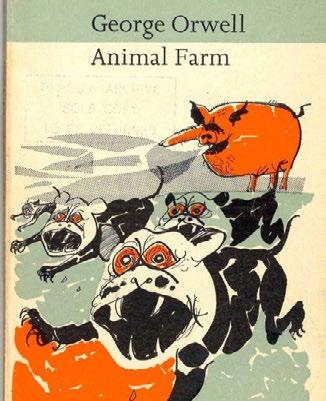
Animal Farm joined the Penguin Modern Classics series with a bold, scratchy illustration of a dictatorial pig, likely Napoleon, by Paul Hogarth. A committed leftist, Hogarth’s work blended documentary artistry with literature, adding a dynamic political edge to the cover.

Marion Deuchers introduced a layered, abstract design featuring a red-tinted background with barely visible farm elements. A commanding pink pig stood in the foreground, while Orwell’s famous quote—“All animals are equal, but some are more equal than others”— was scrawled in graffiti-like handwriting.

The Great Orwell series launched, featuring dramatic reimaginings of Orwell’s works. Animal Farm received a vintage Hollywood horror-inspired cover designed by Dan Pearson, emphasizing its dark and cautionary themes.
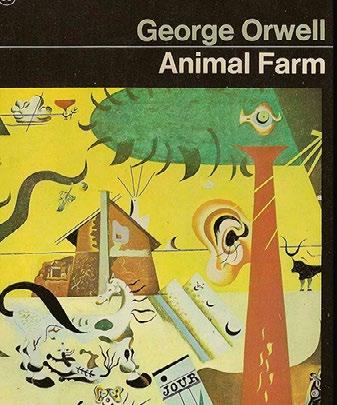
The series underwent a sleek redesign, introducing black covers with modern artwork. featured Joan Miró’s The Tilled Field, an abstracted farm scene that subtly reflected the novel’s themes of control and observation.
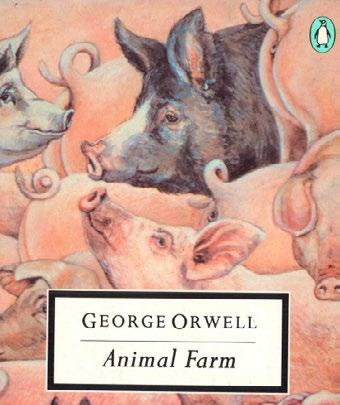
The new millennium saw a return to bold politics, with a silvertoned Penguin Modern Classics edition. The cover, featuring strong-willed pigs against a red star, evoked Paul Hogarth’s earlier designs and emphasized the book’s revolutionary themes.
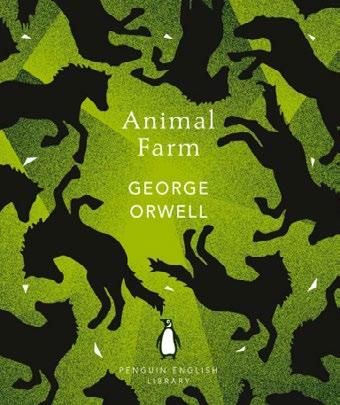
Penguin’s clothbound classics series, designed by Coralie Bickford-Smith, turned Animal Farm green for the first time. The design introduced a new symbol— tumbling horses—set against an ominous backdrop, offering a fresh yet eerie perspective.
As part of the Penguin Twentieth-Century Classics series, the cover took on a softer, pastoral feel, featuring Pig-Spread, a painting by Ditz. This idyllic imagery contrasted with the novel’s darker political themes.

Coralie Bickford-Smith revisited the cover with a minimalist approach, using only red-andblack fencing to symbolize control and division. The striking absence of animals made this design both stark and unsettling, much like Orwell’s story itself.
Adapted from “Animal Farm: How the covers have changed through the decades” (15 August 2021)
FIND OUT
An allegory is a story with a hidden meaning—often political or moral. Orwell’s Animal Farm uses farm animals to represent real historical figures and events.
Animal Farm is more than just a story about talking animals—it’s an allegory of real political figures and events. Based on real events from the Russian Revolution and the rise of Joseph Stalin, do you know who they are?
Characters
��
��
��
��
��
��
��
��
Old Major
Napoleon
Snowball
Squealer
Boxer
The Sheep
The Dogs
Mr. Jones
Historical Representation
Karl Marx / Vladimir Lenin (Revolutionary Thinkers)
Joseph Stalin (Dictator)
Leon Trotsky (Intellectual Revolutionary)
Soviet Propaganda Machine (Media Manipulation)
The Working Class (Loyal, Hardworking, Exploited)
Blind Followers (Easily Manipulated by Propaganda)
Stalin’s Secret Police (Used to Enforce Control)
The Old Ruling Class (Oppressive Leaders)
LET’S THINK
• How do Orwell’s symbols apply to leaders and power struggles today?
• Can we find similar figures and real-life representations today?
One day, Napoleon unleashes a pack of dogs that he has secretly trained. They chase Snowball away, leaving Napoleon as the sole leader. He begins ruling through fear and intimidation, using the dogs to enforce his control.
As Napoleon strengthens his power, the Seven Commandments begin to change—slowly and subtly.
The animals work hard to build a windmill, which Snowball had envisioned as a way to improve their lives. However, a storm destroys the windmill, and Napoleon blames it on Snowball.
The animals rebuild the windmill, only for it to be blown up by neighbouring farmers, who fear the success of Animal Farm.
Despite their sacrifices, the animals receive less food and harsher treatment, while Napoleon and the pigs enjoy luxuries. Boxer, the strongest and most loyal horse, works tirelessly, believing that hard work will solve everything. His personal motto is:
“ I will work harder. ”
However, when Boxer collapses from exhaustion, Napoleon sells him to a horse slaughterer in exchange for money. The animals are devastated, but Squealer, Napoleon’s propaganda pig, convinces them that Boxer died in peace.
Over time, Napoleon and the pigs become indistinguishable from humans. They drink alcohol, wear clothes, and walk on two legs. The Seven Commandments are rewritten until only one remains:
“ All animals are equal, but some animals are more equal than others. ”
The other animals, exhausted and broken, realize too late that the dream of revolution has failed. The final scene shows the pigs talking and laughing with the human farmers, while the other animals look on in shock—unable to tell the difference between pigs and men.
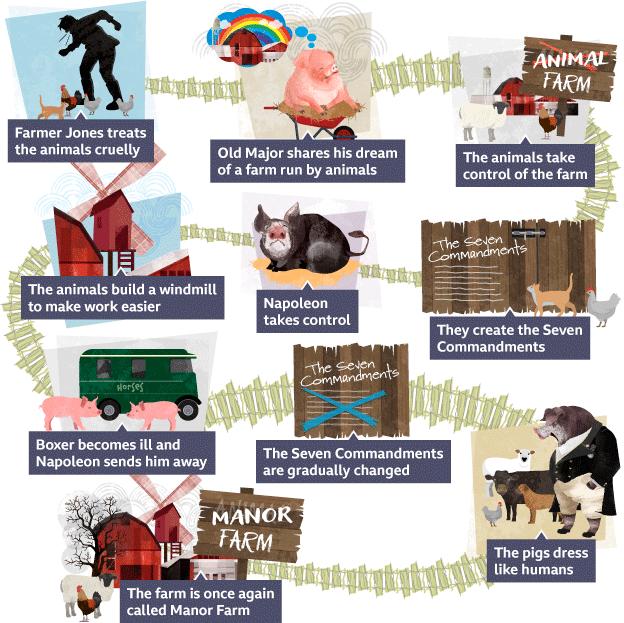
Source:
BBC BITESIZE: Animal Farm by George Orwell
The animals rise up against oppression… but does freedom last?
Words
A leader promises equality… but keeps the best for himself.
are rewritten; history is changed… who even remembers the truth?
WANT TO READ THE FULL NOVELLA?
Scan to read the full text
• Why do revolutions happen?
• Can power ever truly be shared equally?
• What other stories use animals to reflect human society?
Original Title and Censorship of Animal Farm
Orwell originally titled the novel Animal Farm: A Fairy Story, but later editions dropped the subtitle, particularly in the U.S., to avoid misleading readers into thinking it was a children’s book. The novella has faced censorship in various countries including USSR up to 19080s due to its critique of Stalinist policies, it was also temporarily banned in the UAE because of its talking pigs, seen to be against Islamic values.
“If you control the meaning of words, you control the people who use them.”
– Orwell, 1984
Orwell warns of the power of propaganda and the manipulation of language to control public perception. Squealer, the farm’s propaganda minister, twists reality to justify Napoleon’s decisions, using euphemisms and selective storytelling.
• Soviet Propaganda (1920s–1950s)
Newspapers like Pravda promoted Stalin while censoring dissent.
• Fake News & Social Media
Disinformation campaigns shape political opinions and election outcomes.
• Advertising & Corporate Messaging
Terms like “downsizing” replace “mass layoffs” to soften negative impacts.
THINK
• How does Orwell show the dangers of propaganda?
• Can you spot examples of biased language in today’s media?
FURTHER READING & SOURCES
Manufacturing Consent: The Political Economy of Mass Media
FURTHER READING & SOURCES
Digital Disconnect: How Capitalismdouble checking as the link seems to no longer exist
“Who controls the past controls the future. Who controls the present controls the past.”
– Orwell, 1984
One of the most chilling aspects of Animal Farm is how Napoleon rewrites the farm’s history to maintain control. The Seven Commandments—initially written as laws of equality—are altered without the animals realizing it.
• The Soviet Union’s Revisionist History Stalin erased Trotsky from photographs and rewrote official narratives.
• The Rewriting of Colonial Histories
Some school textbooks downplay colonial oppression or glorify imperialism.
• The Digital Age & Memory-Holing
Governments and corporations have the power to delete or censor historical records online.
LET’S THINK
• Can you think of recent examples where history has been rewritten or censored?
• How does Orwell show that memory itself can be a battleground for power?
FURTHER READING & SOURCES Discipline
FURTHER READING & SOURCES
The Age of Surveillance Capitalism: The Fight for a Human Future at the New Frontier of Power
“The obedient always think of themselves as virtuous rather than cowardly.”
– Orwell
In Animal Farm, the sheep blindly follow Napoleon, repeating slogans without thinking critically. Orwell critiques how fear and repetition create obedience, discouraging individuals from questioning authority.
Psychological Theories on Obedience & Authority:
• Milgram’s Obedience Experiment (1961)
Found that people obey authority figures even when asked to harm others.
• Asch’s Conformity Experiment (1951)
Showed how peer pressure leads individuals to agree with false statements.
• Political Rallies & Social Media Echo Chambers
People repeat slogans or spread misinformation without questioning its accuracy.
LET’S THINK
• Why do people obey authority, even when it harms them?
• How do social media algorithms reinforce blind obedience?
FURTHER READING & SOURCES
Obedience to Authority An Experimental View
FURTHER READING & SOURCES
The Lucifer Effect Understanding How Good People Turn Evil
“Every successful revolution puts on in time the robes of the tyrant it has deposed.”
– Animal Farm
Orwell’s novel suggests that without accountability, revolutions often lead to new forms of oppression. The cycle of power in Animal Farm shows that Napoleon’s rule becomes indistinguishable from Mr. Jones’ dictatorship.
Cycles of Oppression in History:
• French Revolution (1789–1799)
Ended monarchy but led to Robespierre’s Reign of Terror.
• Arab Spring (2010–2012)
Overthrew dictators but led to military or extremist rule in some countries.
• Corporate Monopolies
Startups challenge big business, only to become monopolies themselves.
LET’S THINK
• Why do revolutions often replace one oppressive system with another?
• Can power ever truly be shared equally?
FURTHER READING & SOURCES
The Origins of Totalitarianism
FURTHER READING & SOURCES
“All animals are equal, but some animals are more equal than others.”
– Orwell’s Core Message
This single sentence captures the hypocrisy of corrupt leaders. It reveals how those in power manipulate words to maintain control, disguising inequality under the illusion of fairness.
• Can you think of modern examples where equality is promised but not practiced?
• How does Orwell show that power is maintained through language, propaganda, and fear?
Objective: Examine how power is distributed and manipulated in real-world contexts.
1. Divide the class into small groups. Each group takes on a different scenario (historical revolution, corporate power struggle, school hierarchy, or a dystopian government).
2. Analyse who holds power, how they maintain it, and how it changes over time.
3. Present findings: Compare these real-world structures with Animal Farm
• What are the different ways power can be gained and lost?
• How do leaders convince people to follow them?
• Can true equality ever exist, or will power always concentrate in the hands of a few?
Expand beyond Animal F arm—design a modern propaganda poster using similar techniques.
• School Elections: A poster supporting a fictional school president (“A Vote for Me = No More Homework!”).
• Dystopian Society: A state-controlled campaign (“Trust the Government. They Know What’s Best for You.”).
• Social Media Influence: A viral message that distorts facts to gain support.
• How do small changes in wording shift perception? (“Freedom fighters” vs. “terrorists” / “adjustments” vs. “ration cuts”)
• How does propaganda shape public opinion, and where do we see it today?
• Can we recognize biased language in news, advertising, or politics?
• How does social media amplify propaganda today compared to Orwell’s time?
• Why do people fall for misleading narratives, and how does repetition reinforce belief?
• Compare Historical & Modern Propaganda: Analyse government ads, corporate slogans, political speeches for subtle persuasion techniques.
• Digital Literacy Challenge: Track social media algorithms—how do they push propaganda based on likes, shares, and targeted ads?
• Alternative Perspectives: Create counter-propaganda—a rebellion poster from the perspective of Snowball or the other animals.
Objective: Explore how rules and governance affect fairness and justice. Steps:
1. Break students into small groups. Each group will create a “farm” with its own laws.
2. Each group must decide on 7 commandments for their farm (like in Animal Farm).
3. Introduce an outside force (e.g., a new leader, a crisis, a rival farm). Groups must then adapt their commandments and discuss how power influences law-making.
• What happens when rules are rewritten over time?
• Are laws truly fair, or do they serve those in power?
• How do people justify unfair laws?
Oliver Chong is a critically acclaimed Singaporean theatre director, playwright, actor, and designer, known for his minimalist yet emotionally charged storytelling. Chong has a distinct ability to strip down theatre to its essential elements— movement, space, and object interaction—allowing deeper themes to emerge with stark clarity. With a career spanning over two decades, Chong’s work explores power, human nature, and existential themes through a unique blend of minimalism, physical performance, and object theatre.
Chong is deeply involved in Singapore’s theatre landscape as both an independent theatre-maker and a long-time core member of The Finger Players (TFP), one of Singapore’s most renowned puppetry companies.
• Minimalist yet Poetic Storytelling – Using sparse sets and few words, Chong’s works are visually rich and emotionally resonant.
• Symbolic & Metaphorical Use of Objects – Everyday items transform into powerful theatrical symbols.
• Fusion of Physical Performance & Puppetry – A seamless blend of human and puppet performance that expands storytelling possibilities.
• Multi-Disciplinary Approach – Incorporates movement, soundscapes, and abstract imagery to enhance audience interpretation.
Chong’s directorial choices often strip away theatrical excess, challenging audiences to engage with the core emotions and themes of a play. Diverse portfolio includes powerful one-man performances, large-scale puppet theatre, and contemporary reimagining of classic literature. Each work showcases his ability to balance abstraction with emotional depth:
I’m Just a Piano Teacher (2006, The Finger Players) – A satirical play critiquing Singapore’s rigid education system, blending humour with social commentary.
Roots (2012) – A one-man play where Chong performs multiple characters, exploring ancestry, migration, and identity.
The Spirits Play (2015, 2017, The Finger Players) – A seminal Singaporean play depicting the agony, guilt and turmoil left in the aftermath of war.
Citizen Dog (2018, The Finger Players) – A political puppet theatre piece exploring urban alienation and surveillance culture.
Journey to Nowhere (2020, The Finger Players & NAFA) – Based on the famous 16th-century epic novel by Wu Cheng’en, the play depicts a roguish Monkey King and his exploits.
The Finger Players (TFP) is one of Singapore’s most renowned theatre companies, specializing in puppetry and visual storytelling. Founded in 1999, TFP has gained acclaim for their ability to merge realism with, creating powerful theatrical experiences that explore political, social, and psychological themes. Their signature style blurs the line between actors and puppets, using intricate designs and precise movement to craft visually compelling narratives.
• Symbolism through abstraction – Puppets amplify political and philosophical themes through exaggerated movements and visuals.
• Minimalist yet powerful staging – Every gesture and object carries deeper meaning.
• Blending human and puppet performance – Actors manipulate the puppets, sometimes stepping into the performance themselves.
• A fusion of traditional and modern puppetry – Techniques such as shadow play, Bunraku-style manipulation, and hand/object puppetry are used to create multi-layered storytelling.
‘We believe in puppetry as a conduit for sharing stories, conversations, and experiences. Since our founding, we have worked with various communities in multiple capacities, showcased our work on an international level, while keeping true to our philosophy of what puppetry is, and can be.’
Learn of the different types of puppets they use and that it is not all child’s play.
Explore & Learn
Find out the many different types of puppets and puppetry styles!
Storytelling, Music & Puppetry
LOST ART OF CAMBODIAN Shadow Puppetry
CHINESE SHADOW PLAY
TURNING OBJECTS Into Puppets
WAYANG KULIT
Shadow Puppet Theater OBJECT THEATER THEORY
Techniques & Practices
Check out this wonderful playlist on Puppetry by the UK National Theater!
THE WAYANG Puppet Theater NATIONAL THEATRE Puppetry
Some video highlights below:
HOW TO MAKE A PUPPET
BRINGING A PUPPET TO LIFE
STORYTELLING WITH PUPPETS
As you watch this adaptation, consider how the production uses puppetry, movement, and staging to bring Orwell’s allegory to life. The questions below will guide your analysis of the themes, symbols, and stagecraft.
At its heart, Animal Farm is a story about power—how it is gained, used, and abused. Watch how the production visually represents these ideas. Look for moments when power shifts on stage:
• How do the pigs manipulate language to control the other animals?
• How does fear, repetition, or misinformation shape their rule?
• How is the cycle of revolution and corruption visually represented?
• Are the animals truly equal, or does the hierarchy remain unchanged?
• How does the production make us question leadership and governance?
• Does it make you feel like history keeps repeating itself?
Puppetry plays a major role in this production, offering a layer of symbolism that enhances Orwell’s themes. Observe the different types of puppetry style used:
3
• How do different styles (shadow puppets, Bunraku-style, object puppetry) create meaning?
• How do the puppets move? Are some animals controlled delicately while others are thrown around? What does this suggest about power and status?
• Are the puppets moved aggressively or gently? How does that impact how we see oppression and submission?
THINK ABOUT IT
• Do you forget the puppeteers are there, or does their presence remind you of manipulation—like unseen forces controlling the farm?
How does puppetry make certain moments more chilling or emotional?
The world of Animal Farm is shaped not just by the puppets, but also by the set, lighting, and sound design. Observe how the environment changes throughout the story:
• How is the farm designed at the beginning vs. at the end of the play?
• How does lighting change to reflect power shifts?
• Does the play make the revolution seem inevitable or avoidable?
• Are sounds and music used to highlight key emotional or political moments?
THINK ABOUT IT DID YOU KNOW?
• What emotions do the staging choices create in you as an audience member? THINK ABOUT IT
You have just witnessed Orwell’s allegory unfold through puppetry and performance. Let’s take a moment to reflect on what stood out and how it made you feel.
Now that the performance is over, what are some images or moments you remember most? Why?
A. What images or moments are still lingering in your mind?
B. Which scene had the most emotional impact on you? Briefly describe the scene and how you felt at that moment…
C. If you had to describe this version of Animal Farm in three words (or phrases), what would they be?
Based on your Flash Thoughts earlier and recalling the performance, write down your observations for the following questions:
From the vivid lingering images or moments, what were some key visual moments that helped you understand the message? Were there any striking stage images that reinforced and/or clarified Orwell’s themes?
Teacher Prompt: How did the puppets’ physical actions (e.g., rigid vs. fluid movements, sudden collapses, exaggerated gestures) reinforce the ideas of power, submission, or resistance?
What made this moment emotionally powerful for you? Was it the puppetry, lighting, movement, or sound design? Did the scene make you feel sympathy, anger, frustration, or fear?
Teacher Prompt: If you had to explain this moment to someone who hasn’t seen the play, what details would you include?
Would you change any of the words if this was performed without puppets but with live actors instead? How might expressions, gestures, and interactions be different without the use of puppetry?
Teacher Prompt: Would live actors create a different emotional impact? Would the audience feel closer or more detached from the characters?
Puppetry is not just a visual technique—it plays a deeper role in reinforcing the story’s themes of manipulation, control, and oppression.
Consider these questions:
✔ How does using puppets emphasize the theme of control?
• Do the pigs seem more powerful because they control their own movements while other animals are manipulated?
• Are there moments when the puppet’s lifelessness reflects the loss of autonomy among the animals?
✔ Did the puppetry make the message stronger or create emotional distance?
• Did the physical separation between puppeteer and puppet make the power dynamics clearer?
• Did the visual abstraction make the oppression feel more universal and symbolic rather than merely personal?
✔ How does the manipulation of puppets mirror the manipulation of truth in Orwell’s story?
• Are there moments where the puppeteers visibly altered the rules of the farm through their movement and staging?
• Did the way the pigs used bigger or more elaborate puppets reflect their increasing dominance over the other animals?
Animal Farm was written in 1945, yet its themes remain deeply relevant today…
Consider these questions:
✔ Can you think of modern examples where power was gained through manipulation?
✔ How do today’s media and politics use language to control public perception—just like Squealer in Animal Farm?
✔ Are revolutions today still at risk of being hijacked by those seeking power rather than true equality?
✔ What does Orwell’s warning about power and corruption mean for us today?
✔ Does this production leave you with hope for change or a warning that history is doomed to repeat itself?
The animals may have taken control of the farm, but have things truly changed? Orwell’s fable warns us that revolutions often replace one form of power with another—raising the question: Are we any different? Today, systems of control still shape our world, whether in politics, media, or workplaces.
Now that you’ve witnessed Animal Farm on stage, let’s step beyond the barnyard and explore how Orwell’s themes of power, manipulation, and resistance still resonate in our daily lives. Through discussion, creative interpretation, and hands-on activities, examine whether we, too, are caught in an endless cycle—trapped in a farm of our own making.
The novel ends with one of the most famous lines in literature:
“ The creatures outside looked from pig to man, and from man to pig, and from pig to man again; but already it was impossible to say which was which.”
— Animal Farm, George Orwell
ACTIVITY:
Take a stand
• How did the performance reflect this final moment?
• Does the revolution succeed or fail in the end? Why?
• What message does Orwell want us to take away from this conclusion?
Take It Further!
• Create a freeze-frame tableau of the final scene—what does power look like at the end of the story?
• Rewrite the final line from another character’s perspective (e.g., Clover, Benjamin, or the sheep).
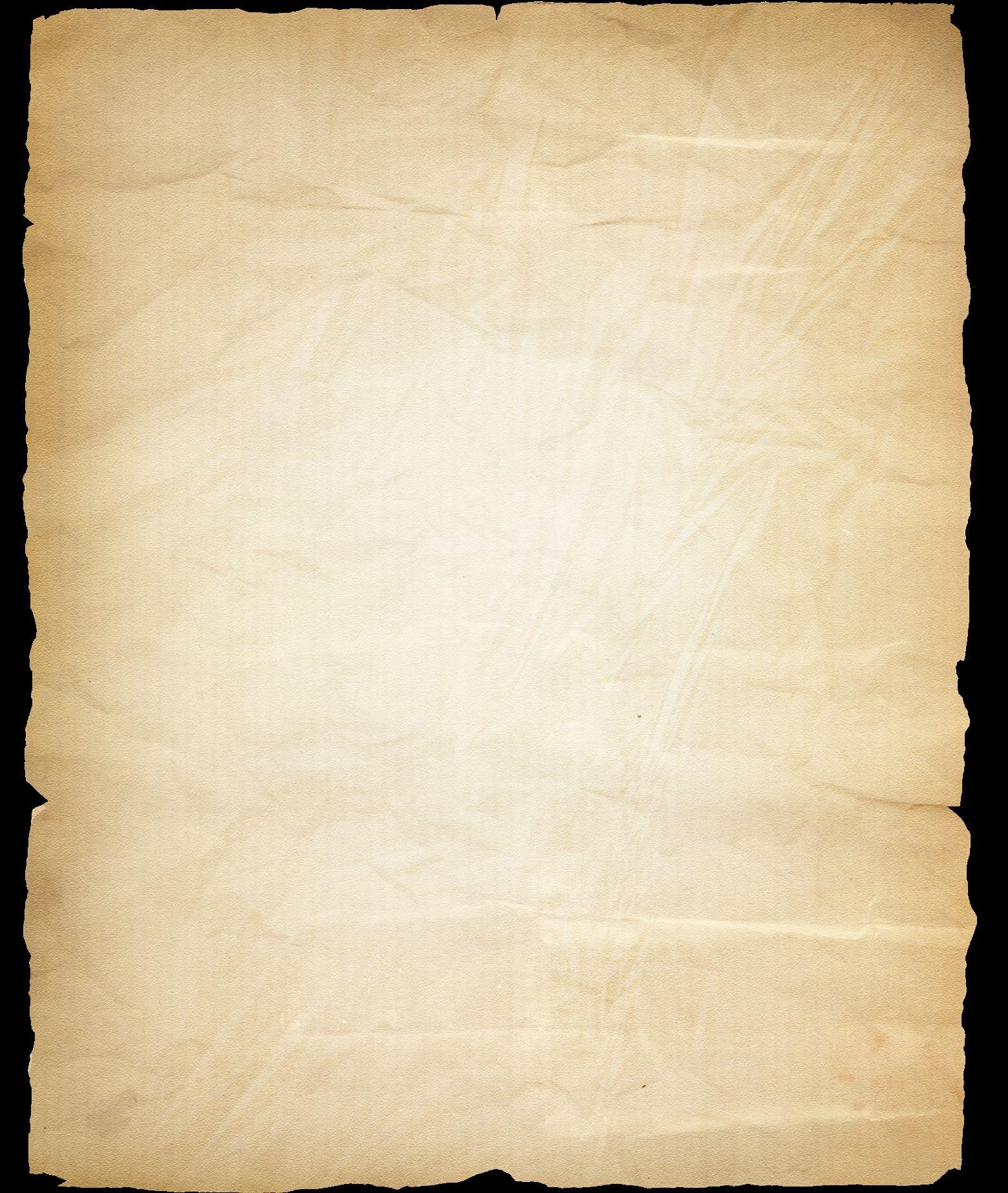
Dear Comrade Napoleon,
I hope this letter finds you well. I am writing to share my thoughts about our beloved farm and the revolution we fought for together.
I remember the early days of the rebellion, when we chased away Mr. Jones and took control of the farm. It was a time of hope and unity, and I was proud to contribute my strength to building the windmill and improving our lives. I still believe in the principles of Animalism and our dream of a fair and equal society.
However, I have noticed that some animals are working harder than others, and not everyone seems to benefit equally from our efforts. I trust that you have the best intentions for the farm, but I worry that some of us are growing tired and discouraged. Perhaps we could find ways to share the workload more fairly or ensure that everyone has enough food and rest.
I want to assure you of my unwavering loyalty to you and the farm. I will continue to work harder every day, as I always have, because I believe in our cause. But I also hope that we can work together to make the farm a better place for all animals.
Thank you for listening to my thoughts, Comrade Napoleon. I trust you will do what is best for all of us.
Yours faithfully, Boxer “I will work harder.”

Boxer as Illustrated by Quentin Blake. Source: Animal Farm, published by The Folio Society (1984)
https://quentinblake.com/books/animalfarm
Objective: Design and build a puppet that represents a revolutionary leader— real or fictional.
Materials:
Paper, cardboard, fabric, string, chopsticks, tape, recycled objects.
Steps:
1. Choose an animal to represent your leader.
2. Decide on physical traits (e.g., larger = powerful, damaged = oppressed).
3. Build a moveable puppet using simple materials.
4. Write a manifesto—what does this leader promise their followers?
Take It Further!
• Research historical revolutions—how do leaders change from idealists to dictators?
• Create two versions of the puppet: One before gaining power. One after corruption takes hold.
Objective: Use shadow puppetry to retell a key moment in Animal Farm.
Materials:
Black cardstock, scissors, a torchlight.
Steps:
1. Create shadow puppets of major characters (Napoleon, Boxer, the sheep, the dogs).
2. Experiment with angles and scale—what happens when a character’s shadow grows larger?
3. Recreate a key moment (e.g., Snowball’s exile, Boxer’s betrayal, the final toast between pigs and humans).
DISCUSSION
• How does shadow manipulation reflect Orwell’s warning about how leaders distort reality?
Objective: Reimagine Animal Farm in a modern context, applying Orwell’s themes to contemporary power structures.
Steps:
1. Choose a New Setting: How would the story change if it took place in:
• A corporate office with executives and employees?
• A social media empire where influencers control the narrative?
• A school system where students and teachers navigate authority?
2. Rewrite the Slogans: Change the original commandments to fit your setting Example: Instead of “Four legs good, two legs bad,” what might a tech CEO say to justify company policies? Instead of “All animals are equal, but some are more equal than others,” how would a politician or a social media influencer frame inequality?
3. Create a Short Scene: Write or act out a 30-second commercial, speech, or press release from the new leader of your Animal Farm
DISCUSSION
• Does the new setting change the power dynamics, or do the same patterns repeat?
• How does language still play a role in controlling the people (or animals)?
• Can any revolution ever escape corruption?
Animal Farm is more than just a story about animals—it’s a warning about power, control, and human nature. As you leave this experience, think about where in the world today similar struggles for power are unfolding. The revolution may be over, but the cycle of power continues—who holds control now?
As Singapore’s annual pinnacle performing arts festival, the Singapore International Festival of Arts (SIFA) presents captivating and diverse works across theatre,
music, dance, film and visual arts. First launched as the Singapore Festival of Arts in 1977, the festival has gone through several evolutions and inspired generations of arts lovers and practitioners.
Under the helm of Festival Director Natalie Hennedige from 2022 to 2025, SIFA focuses on performance and creation in the physical and online space, around the theme The Anatomy of Performance.
Today, the highly anticipated festival is a high point on Singapore’s arts and cultural calendar. SIFA continues its festival mission to champion the creation and presentation of Singaporean and international works.
We can’t wait to welcome you at SIFA. Share with the world (and us!) what you are most excited to see at this year’s festival, or your photos and videos of your favourite SIFA festival moment. artshouselimited







Arts House Limited (AHL) is a not-for-profit organisation dedicated to inspiring and enriching lives through the transformative power of the arts.
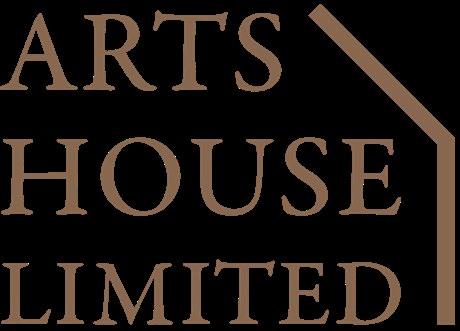
Arts House Limited (AHL) is a not-for-profit organisation dedicated to inspiring and enriching lives through the transformative power of the arts.
We proudly organise two flagship national festivals: the Singapore International Festival of Arts, a celebration of the local and international performing arts, and the Singapore Writers Festival, a multilingual festival presenting the world’s leading literary talents.
At the heart of AHL’s mission are six arts spaces designed to support our vibrant arts sector and forge connections within communities. It includes two national monuments—The Arts House, multidisciplinary arts centre, and Victoria Theatre & Victoria Concert Hall, a heritage building that is home to the Singapore Symphony Orchestra.
AHL also runs the Drama Centre, a dedicated performing arts space, as well as three creative enclaves for arts groups and innovative enterprises: the Goodman Arts Centre, Aliwal Arts Centre, and Stamford Arts Centre.
Established in 2002 as The Old Parliament House Limited, AHL transitioned to its current identity as Arts House Limited in 2014. As a public company limited by guarantee under the National Arts Council, we remain steadfast in our mission to champion the arts as a powerful force for positive change.
For more information, visit https://artshouselimited.sg/
Engage your students in the arts at SIFA with our special deals for schools.
SIFA offers 15%* off ticket purchases to local and international students.
*Applicable to selected ticket categories and programmes
For selected programmes, government schools may enjoy subsidies up to 50% of the ticket price. Applicable for Secondary Schools, Junior Colleges, Centralised Institute and Institute of Technical Educations (ITE) levels.
Special Education Schools may use the Tote Board Arts Grant to subsidise up to 70% of the programme cost. For more details on school bookings or Tote Board Arts Grant, please email sifatickets@artshouse.sg.
For a group of 20 tickets booked, 1 complimentary ticket is accorded to the accompanying educator.
For further enquiries on programmes or education kits, please contact meganlee@artshouse.sg.
For group bookings, please contact sifatickets@artshouse.sg.
To read more about the Tote Board Arts Grant,visit tinyurl.com/nac-Tote-Board-Arts-Grant.
For more information on the festival, visit sifa.sg